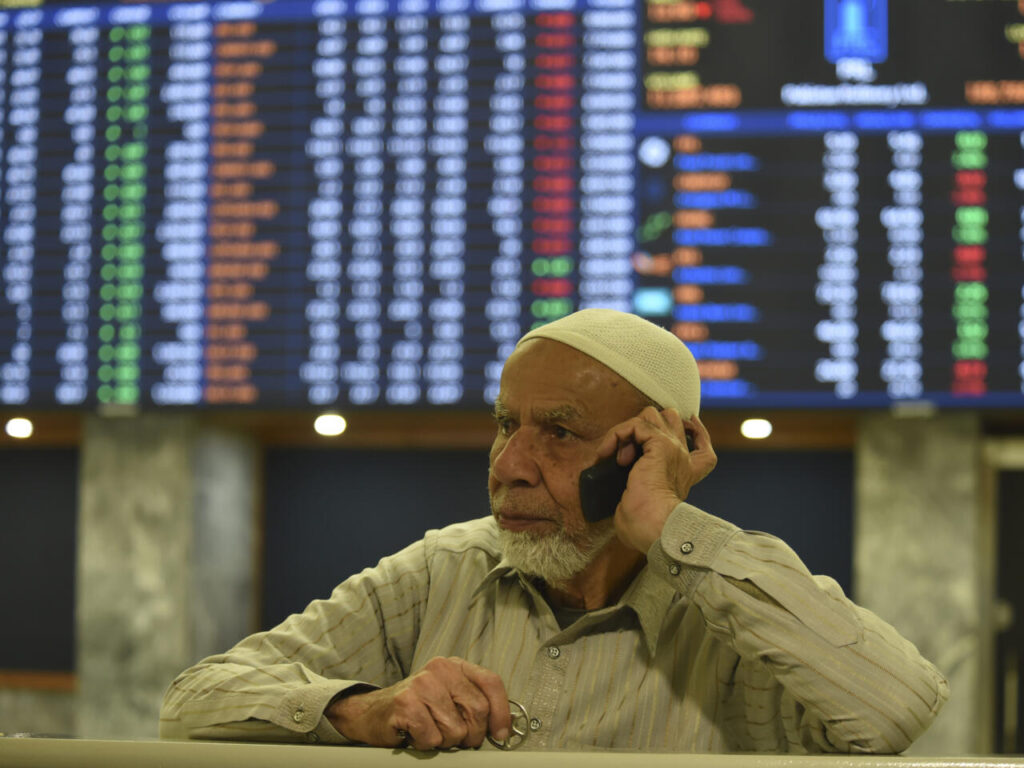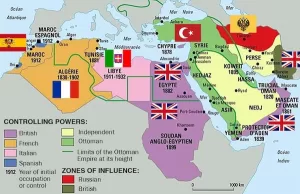Pakistan’s Economy in ‘Collapse’ as IMF Visits
Courtesy: AFP, published in ‘France 24’
31 January 2023: Pakistan is gripped by a major economic crisis, with the rupee plummeting, inflation soaring and energy in short supply as International Monetary Fund officials visit to discuss a vital cash injection.
Prime Minister Shehbaz Sharif for months held out against the tax rises and subsidy slashing demanded by the IMF, fearful of backlash ahead of elections due in October.
But in recent days, with the prospect of national bankruptcy looming and no friendly countries willing to offer less painful bailouts, Islamabad has started to bow to pressure.
The government loosened controls on the rupee to rein in a rampant black market in US dollars, a step that caused the currency to plunge to a record low. Artificially cheap petrol prices have also been hiked.
“We’re at the end of the road. The government has to make the political case to the public for meeting these (IMF) demands,” former World Bank economist Abid Hasan told AFP.
Time is of the essence, with Nasir Iqbal from the Pakistan Institute of Development Economics warning the economy had already “virtually collapsed” due to mismanagement and political turmoil.
Cost-of-living crisis
The IMF delegation arrived on Tuesday to a nation in panic.
The world’s fifth-biggest population has less than $3.7 billion in the state bank — enough to cover just three weeks of imports.
It is no longer issuing letters of credit, except for essential food and medicines, causing a backlog of thousands of shipping containers at Karachi port stuffed with stock the country can no longer afford.
Industry has been hammered by the imports block and massive rupee devaluation. Public construction projects have halted, textiles factories have partially shut down and domestic investment has slowed.
In downtown Karachi, dozens of day labourers including carpenters and painters wait with their tools on display for work that never comes.
“The number of beggars has increased and the number of labourers has decreased,” said 55-year-old mason Zafar Iqbal, who was eating biryani from a plastic bag donated by a passerby.
“Inflation is so high that one cannot earn enough.”
At the petrol pump, a widow with her son said every few hundred rupees (75 cents) of fuel for their motorcycle was precious, with the pair only eating two meals a day.
“The cost is so high that we eat our breakfast late and the second meal at around seven, with nothing in between,” said Ulfat, who declined to give her second name.
Pakistan is struggling on many fronts, with the country reeling from unprecedented floods that submerged a third of its territory last summer and a deteriorating security situation near the Afghanistan border.
Political mayhem
Pakistan is locked in an endless cycle of servicing external debt.
State Bank governor Jamil Ahmed last month said the country owed $33 billion in loans and other foreign payments before the end of the fiscal year in June.
A diplomatic offensive has seen $4 billion rolled over by lending nations, with $8.3 billion still on the negotiating table.
Meanwhile, Pakistan is battling severe energy shortages — with capacity drained by poor infrastructure and mismanagement — compounding the misery of businesses and citizens.
Last week the whole country was plunged into a day-long blackout because of a fault in the national grid that followed a cost-cutting measure.
State petroleum minister Musadik Malik told reporters in Islamabad that imports of Russian oil would start in April, paid for in currencies of “friendly countries” in a mutually beneficial deal.
The tumbling economy mirrors the country’s political chaos, with former prime minister Imran Khan heaping pressure on the ruling coalition in his bid for early elections while his popularity remains high.
Khan, who was ousted last year in a no-confidence motion, negotiated a multi-billion-dollar loan package from the IMF in 2019.
But he reneged on promises to cut subsidies and market interventions that had cushioned the cost-of-living crisis, causing the programme to stall.
It is a common pattern in Pakistan, where most people live in rural poverty, with more than two dozen IMF deals brokered and then broken over the decades.
“Even if Pakistan avoids default, the underlying structural factors that triggered the current crisis — one exacerbated by poor leadership and external global shocks — will still be in place,” tweeted political analyst Michael Kugelman, the director of the South Asia Institute at the Wilson Center in Washington.
“Barring difficult, large-scale reforms, the next crisis could be just around the corner.”
❈ ❈ ❈
Another article published in ‘The Dawn’, on 31 January 2023, “Pakistan Braces for Fuel Shortages Amid Liquidity Crisis”, gives more details about Pakistan’s economic crisis (extract):
Pakistan could face a crunch in fuel supplies in February as banks have stopped financing and facilitating payments for imports due to depleting foreign exchange reserves, traders and industry sources said.
The country is facing a balance of payments crisis and the plummeting value of the rupee is pushing up the price of imported goods. Energy comprises a large chunk of the import bill.
Pakistan typically meets more than a third of its annual power demand using imported natural gas, prices for which shot up following Russia’s invasion of Ukraine.
“There is no shortage this fortnight. If we don’t have LCs (letters of credit) open right now, we might see shortages in the next fortnight,” a senior official at one of the oil companies told Reuters.
A letter of credit issued by the importer’s banks is a standard form of payment guarantee in the oil trade to the exporter.
❈ ❈ ❈
And another article published in ‘The Week’, “Why IMF Loan Can’t Save Pakistan in the Long Run” also on 31 January 2023 added (extract):
As it teeters on the edge of economic collapse and loan default, Pakistan is desperately at the mercy of the International Monetary Fund (IMF). Just days after Islamabad succumbed to IMF demands, which will, in all probability, backfire on the Shahbaz Sharif-led government politically, talks resumed between Pakistan and IMF officials on Tuesday.
The aim is to complete the ninth review under the $7 billion Extended Fund Facility. But, the Pakistan delegation led by Finance Minister Ishaq Dar does realise this isn’t a cakewalk as he has, for long, sought some leniency from the IMF on tax rises and subsidy slashing, which the agency mandates for the revival of the loan facility.
All attempts to coax the IMF, including requesting the US to use its diplomatic influence to convince the IMF, have ended in vain. No friendly country has offered less painful bailouts too. This left Islamabad with no option but to heed its demand.
The IMF is currently asking Pakistani authorities to take additional taxation measures worth ₹600 billion through a mini-budget.
What’s left
As per reports, the foreign exchange reserves of the State Bank of Pakistan (SBP) are currently hovering around $3.678 billion, and this just covers three weeks of imports.
But, now that the government removed the cap on the official exchange rate, the Pakistan Rupee (PKR) has plunged to 262.6 to a dollar, an unprecedented 13.7 per cent rupee depreciation. The current situation of the rise in dollar value will also likely ease the pressure on forex reserves.
But, this has come as a huge blow to Pakistan, a wave of price hikes and inflation has struck already-ailing Pakistan. Fuel prices shot to an unprecedented level and inflation is high.
The IMF tranche
While the ruling elite in Pakistan views the IMF loan as a saviour, financial analysts predict doom in the economy if the reforms proposed by the agency are accepted. “The choice, many of them say, is between the ‘tough conditions’ of the IMF or certain default; an inflation rate of 35pc rather than 70pc,” read an opinion piece that appeared in the Karachi-based Dawn.
With the government bowing to IMF demands, the shares have picked up in Pakistan. The government too expects dollar inflow from February, not only from the IMF but from Saudi Arabia, UAE and China. It also expects the post-flood relief packages pledged by other countries.
That said, these funds will go towards external debt payments which amount to $8bn, due by June.
“The current loan package is set to end on June 30, and if there’s no new snag, we will get up to $3 billion in funding from the lender. This may take care of our immediate balance-of-payments needs but will not be sufficient to cope with a similar payments crisis the next fiscal year and beyond. It is, therefore, advisable that the government seek to increase the size of IMF funding and the programme, and extend its duration,” according to an editorial in Dawn.




